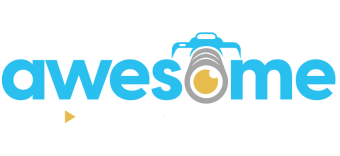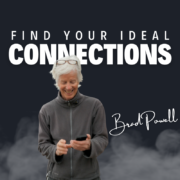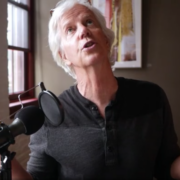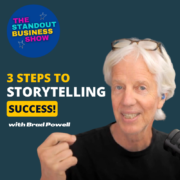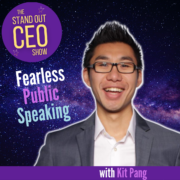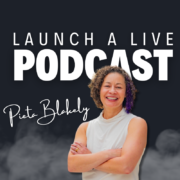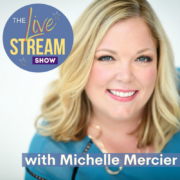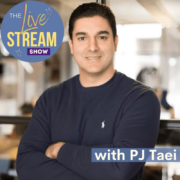150. 3 Lessons From 3 Years of Podcast Hosting with Brad Powell
I’m celebrating publishing the 150th episode of The Standout Business Show, so I thought I’d take a minute and share some of the best things doing this podcast has taught me over the past three years (and over 150 interviews!)
Here’s my hot take on some of the most valuable lessons I’ve learned from past guests including relationship marketing, minimalist marketing and, last but not least, lighting your beacon.
If you’ve ever thought of hosting a podcast, then listen up, because I’m sharing some insider secrets on how to hang in there and why over the past 3 years over 90% of podcasts have quit publishing!
Episodes mentioned:
127. Lighting Your Beacon & Building Your Business Ecosystem with Pamela Slim
10. Launch & Grow A Live Video Podcast – with Pieta Blakely
Resources Schedule a ‘Stand Out on Video’ call with me where I’ll help you see how you can start building trust & authority AND earning that bigger check by being more yourself on video.
Whenever you’re ready:
I help business leaders, consultants & coaches create a short-form video sales system that makes selling easy. In a 1-hour remote interview you get 1 month of short form video content that does your selling for you – scheduled across all your social media channels.
Imagine having dream clients excited to buy from you because they’ve been pre-sold by your videos.
Learn more right here > https://awesomevideomakers.com/mic-drop-moments/
Transcript
Brad Powell:
Most people, when they think about podcasting, they think about it in the wrong way.
Brad Powell:
They see, you know very successful podcasters who have a big following and a big audience and they’re thinking, oh, I want to start a podcast so that I can attract a big following, and that big following is what’s going to be the engine behind my business.
Brad Powell:
Halloween is what’s going to be the engine behind my business, and all of that is good, except that podcasting actually doesn’t really work that way. It isn’t a good engine for audience growth. It can be a wonderful engine for nurturing people and having them come and hang out with you and really go deep with you and the content and the message that you’re sharing and really building deep with you and the content and the message that you’re sharing and really building that intimate relationship. Welcome to the Standout Business Show. I’m Brad Powell and today I am celebrating 150 episodes of this show. Today’s thing is going to focus on three lessons that I’ve learned from running this program for three years, and there’s some really good ones. It has been such a period of expansion for me personally, as well as what this has done for my business. So stay tuned and let’s start the show.
Brad Powell:
A couple days ago I was riding on the bike trail. About halfway there there’s this really beautiful spot that looks out over an open meadow and I stopped there because I wanted to adjust one of the straps on my pannier. So I’m bending over fiddling with my bike and this other cyclist goes by and he said to me are you all set? And I stood up and I looked at him and I said I’m fine. And then he said well, don’t be surprised. And I, you know, I completely caught myself. I went, oh my God, like why am I reacting to this guy? As if I like, walked into a department store and the salesperson comes up to me and says can I help you? And I’m going no, no, I just want to look around, you know, like I don’t need any help from you. And so here’s this guy. He just wants to offer me some assistance in case, like, I had a flat tire or something like that and I was kind of stiff arming him and I really had to catch myself and go. Oh my gosh, you know where does this come from.
Brad Powell:
I think there’s a big, huge lesson there for all of us entrepreneurs when we go into business for ourselves, we have this mindset and we kind of need it that we can figure it out. You need faith in yourself that you’re going to be able to figure it all out and whatever comes up your way the crisis, the problem, the deal you’re going to knuckle down and figure it out on your own. The thing is that in order to actually have a successful business, you really need to look for getting help from a whole variety of people. One of my previous guests, who I’m going to talk about in a little bit her name is Pamela Slim and her book, which I highly recommend it’s probably the one business book that I would recommend over all the rest is called the Widest Net. Over all the rest is called the Widest Net. Her whole premise is that you want to reach out to all of the possible partners who can help you with your business in a whole variety of ways. This is the lesson for my podcast.
Brad Powell:
The main reason that I do this show even though today I’m on here by myself is that I bring on people who I am getting to know and I’m building relationship with, and, over time, good things happen as a result of that relationship building. This is where most people, when they think about podcasting, they think about it in the wrong way. They see, you know very successful podcasters who have a big following and a big audience and they’re thinking, oh, I want to start a podcast so that I can attract a big following and that big following is what’s going to be the engine behind my business and all of that is good, except that podcasting actually doesn’t really work that way. It isn’t a good engine for audience growth. It can be a wonderful engine for nurturing people and having them come and hang out with you and really go deep with you and the content and the message that you’re sharing and really building that intimate relationship, but it’s not great for massive audience growth because it’s actually kind of hard for people to find your podcast. It doesn’t live on places where audiences will naturally find it. It lives in the podcast world and so people have to go looking for it there.
Brad Powell:
On the other hand, the thing that podcasts do really well is that if you are interacting with other people, like I do on this show, and you build relationship, like I, have a chance to reach out to anyone I want to. My marketing crushes, my entrepreneur people who I admire and hold at high esteem and are heroes of mine and I take inspiration from hold at high esteem and are heroes of mine, and I take inspiration from Authors who’ve written great books that I have read and devoured maybe two or three times already, and I get to go and have a half hour conversation with them. This is a wonderful opportunity for me just to expand my own knowledge and information and all the things that I’m learning on a personal level all the things that I’m learning on a personal level but it also allows me to build my network and my business relationships where we can do things together in a collaborative way that helps us all out. This is really what I’ve been able to do with this show and if you’ve been a listener for any length of time, you’ve been a part of this, so I want to thank you, if anyone has been here for any length of time. Thank you so much for hanging out with me and coming back once and again. So I want to dive in here and talk a little bit of the history of the show and also some of the biggest things that I’ve learned and where it’s taken me, and hopefully this will be helpful for you.
Brad Powell:
This show got started right at the beginning of the pandemic, so it’s a little over three years ago. One of the interesting things about that and I just learned this recently is that at that time, you know, everyone had a lot of extra time, and so a lot of people had the same idea. They all said oh look at all the time I have I’ve been thinking about doing a podcast. Why don’t I start one? And so a ton of people did. In fact, at the peak of podcast showdom, there were over four million four million shows. A lot of them got created about two and a half three years ago, like boom, huge explosion in the number of shows being produced. However, the light at the end of that tunnel is that most of those shows, most of the people who started a show back then, 90% of them are no longer doing it. They all quit for one reason or another, and so only a few of us stalwart characters have carried on and are still doing it from that time and I’m one of them and so now the statistic is that there’s a little bit less than 400,000. So only 10% of that peak number are still active shows. These are shows that are producing a podcast at least once a month.
Brad Powell:
This is really the opportunity, when you compare what you’re doing with a podcast, to say YouTube channels or blogs or any other long-form piece of content like that. There’s millions and millions and millions of blogs I don’t know what the number is, but it’s very large and there’s millions and millions and millions of blogs I don’t know what the number is, but it’s very large and there’s millions and millions of people putting up YouTube videos and have YouTube channels. So if you jump into either of those types of content, you are going to be competing against millions and millions of other people, so it’s going to be much harder for you to stand out. But if you want to do something, but if you want to do something unique, if you want to really get into someone’s ear on a regular basis and have this deliverability where they have you on their phone and when they’re subscribed to your show, they are going to get your new episode it’s actually going to be delivered to them. There’s no algorithm standing in the way. There’s no thing that suppresses your content from delivery. It’s actually going to reach the audience that you have, and so podcasting works really well in this way and it’s not nearly so competitive as all the other content types that are out there. So if you’ve got a great idea, if there’s some thing that you’re super passionate about talking about, go for it. There’s never been a better time to do a podcast than right now.
Brad Powell:
However, having said that, the way that I approach my show is actually fairly different than what other people do, and so that’s a little bit of what I’m going to talk about today, and so one of the biggest mistakes that I made in the beginning was that my first iteration of my show was called the live stream show, and it was all about live video and the fact the show is produced as a live video, just like it still is, and so I was doing live video, and I was talking about live video, and I had guests on that were sharing all the information they had about some form of how you present when you’re doing live video, and it was all about that and this one technique, which kind of sounds good, except that it was very self-serving, because I help people do live video. That’s part of my work, and the show was really all about here’s this thing that I love and here’s this thing that I do, and I’m going to share it with all of you. It really wasn’t about my audience and it really wasn’t about a wide swath of guests Like it brought me a very narrow group of guests in terms of who I might be talking to. So after about the first year, I shifted and I changed the show and really made it much more about the people I really want to talk to, the people I really want to be helping and serving, which is all the small businesses, whose biggest challenge is, in fact, breaking through when they’re trying to get their message out, and breaking through all the noise and all the other content types that are out there and getting people to actually see them and hear them with the thing that they’re wanting to do and actually enabling them to make the change that they’re trying to make with their business. So thus the standout business show.
Brad Powell:
I mean there’s probably no more important thing for you to be thinking about in terms of how your business runs than whether or not it’s distinctive, whether or not it’s somewhat unique, whether or not you know whatever it is that you do, you could be any kind of thing. You could be a plumber, you could be a lawyer, you could be a realtor, you know any of those fields. You could be an accountant. Well, what is it that you do that makes you different and distinctive and positions you as one of the best authorities on that thing that you do, different from all the rest? And this is a big challenge, but it’s also a big opportunity, and that’s the real motivation behind this show. And, of course, once I’ve created that particular umbrella, there’s all kinds of people that I can talk to who are doing it well, who have in fact succeeded in distinguishing themselves in one way or another, and we can all learn from their example and from their lesson. And so here I am sharing.
Brad Powell:
The one way that I’ve distinguished myself is by doing this. This is the thing that I do, and I do the Standout Business Show, and it helps me stand out. I know it’s really meta, right? So the first big lesson that I’m going to share here is around this topic of relationship marketing. The person who works in this field is Michelle Warner, and if you really want to go deep with Michelle’s work, just go back to episode number 144, where she actually gives a full-on presentation on the nuts and bolts of relationship marketing.
Brad Powell:
But the concept is that most of us who are working in the field of, you know, trying to get our business online and trying to get ourselves some kind of exposure is we are looking at traffic marketing. We’re trying to get the biggest amount of reach and reach the biggest number of people, and whether we’re doing it organically or we’re doing it in a paid way, what we’re looking for is high volume of traffic or we’re doing it in a paid way. What we’re looking for is high volume of traffic, and her attitude is that actually, that’s just one end of the spectrum, and at the very other end of the spectrum, there’s this thing about building relationships and that there’s all kinds of activities that you can do around relationship building that will serve your business in a much deeper and more meaningful way. And this is particularly true if you are a kind of business like I am, where you’re providing a service and when people want to hire you, the reason they’re hiring you is because of you. You’re the one who is delivering the service, and in that delivery, you are in an ongoing relationship with your clients, and their relationship needs to be positive, otherwise, why would they work with you? And so people need to trust you and they need to like you and they need to do this basic stuff of do I want to work with this person and so in your marketing you need to develop that relationship so that all of your prospective clients are feeling like, oh, I do like this person, I really can see that I would enjoy working with this person, and when they’re at that point it’s much easier for them to say, yes, let’s go, I want to get started. And so a lot of the activity wants to be that relationship part, whereas the traffic thing the traffic thing usually misses a lot of key parts of how a relationship can be formed.
Brad Powell:
The podcast, this show if you’re doing something like this, you are developing relationships just simply because you’re on for a fairly long time and people get a really good sense of you. But, more to the point, when you get a chance to bring in people who you want to build relationship with, it’s not just about you know, let’s have a conversation or let’s have you teach a topic. It’s more about who are you and what can I learn about you and what can I learn from you, and so on, so that you get together, you have a good time and it’s the beginning of something beautiful, kind of like that scene in the end of Casablanca where Humphrey Bogart is looking at the French officer and he’s saying I think this could be the beginning of a beautiful relationship, louis, I think this is the beginning of a beautiful friendship and that’s the attitude that you want to take. So, with the whole thing of doing this on an ongoing basis, what’s happening is that I’m meeting my guests and then from those meetings, I’m able to come back and say hey, what are the ways that we could collaborate and or work together? And there’s all kinds of possibilities there in terms of you know, if they’re doing some kind of event or a workshop, I can announce that to my people, and vice versa, so that whoever you have out there who is already a person who is reaching an audience and a group of people who are exactly the same kind of people that would be good for you. Then you are doing less work in trying to get to that particular audience because they’re already there and they’re already trusted by that audience. So if they bring you in as a trusted partner, you basically get a leg up of oh, now I’m on the inside, now I’m in the room with this group of people, and this is something that you can do again and again and again and really be meeting other people’s networks and growing your own network as a result.
Brad Powell:
And one of my clients I’ll just share a little story, and this again also comes from the pandemic time One of my clients who’s a nonprofit consultant. She came to me again at the start of the pandemic and she wanted to start a weekly live podcast and she never done anything like this before and so we set up this series that she has been doing on LinkedIn and so every week on Fridays in the morning she’s been going live and she actually got a friend, a colleague, to come in with her, so the two of them go live together and then they invite a guest on. And what she did was that she invited the CEO of a nonprofit and it was either someone who she’d already worked with or someone who she would love to work with in the future and they would come in and they would talk about some of the challenges that nonprofits are facing. And during the pandemic this was kind of a big deal in the sense that all the nonprofits all of a sudden had lost the ability to do their annual fundraiser, that big, huge in-person fundraising event. All of those things got canceled and so all the nonprofits were kind of scrambling, like what are we going to do? Like how are we going to raise money or make up for this gap in our budget that we just aren’t going to be able to do? And people were very concerned and very worried, not the least of which was this client of mine who was thinking well, none of my clients are going to hire me because their funding is drying up and I’ll lose my work as well. So she started doing this series and what happened was every week, week after week, one of these CEOs would come on. They would have this great conversation and she started building relationship with all of the prominent, most successful nonprofits in the country and they entered this discussion around what do nonprofits do in time of crisis, and so she became the moderator of this conversation that really wanted to happen amongst the nonprofit community. As a result, she became known for this thing that she was doing and she became known by all of the biggest nonprofit leaders in North America and guess what Her business grew Like. A lot of these people turned right around and said you know, I want to hire you to come in and consult with our organization because I can see that you would do us a lot of good. And so, instead of what she was afraid to have happen during that first year of the pandemic and her consulting practice dry up and shrink it actually grew and has kept growing since that time. This is relationship marketing at its best. Absolutely. That’s probably the biggest thing that I would say is the takeaway from doing something like what I’ve been doing.
Brad Powell:
Thing number two that I want to share was something from Pamela Slim, and if you want to go deep into Pamela’s work, go back to episode number 127, where we talked about this term that she uses, called lighting your beacon, and what she means by that is every entrepreneur really wants to have a platform where you have your body of work and whatever that is and it could be, you know, whatever you’re best at. It could be a blog, it could be a book, and it could be a podcast, and or it could be a YouTube channel, like whatever is the thing that you are feeling comfortable doing. This is where you want to focus the body of information and expertise that you have put together so that people can access it, and the idea here is that when someone comes in contact with you, they are going. Well, this is cool, but I want to know more. And so they can go to this thing. Your beacon and your whole body of work is in there. It’s an archive and they can go and binge to your heart’s content.
Brad Powell:
And this, again, is why I like podcasting. It’s why I like video podcasting, because whichever form people want whether they want to listen to you or they want to watch you they can binge and like. It’s very bingeable. And podcasts on a phone are perfect bingeable thing because you get on somebody’s podcast and all the episodes are there and you can just play, play, play and binge the whole darn thing, if you want to, in a relatively short period of time. And this is usually what happens when people discover a new show and they like the content and there’s. You know, in this case I’ve got 150 episodes. You can just go binge to your heart’s content and it’s all there. This is what I’ve established as my beacon, the beacon that I’ve lit.
Brad Powell:
If you want to go deep on the kinds of things that I like to talk about and things that I’m most interested in, it’s all here and it’s all been created in this archive over the last three years and I’ve done a mix of like what I’m doing today, a mix of guest interviews and solo interviews, and if you want to just know what I have to say, you can just go in and tap on all the ones that are just me, and there’s a lot there, like there’s a lot of information that I’ve been sharing and a lot of things like I’m doing today, like here’s something that I did and here’s what I learned and here’s what it did for my business, that kind of thing. The other thing that I’ll talk about and this is the third lesson is all about getting in contact with other people’s audiences. This is something, again going back to Michelle Warner’s work, instead of thinking about your ideal customer avatar, she talks about your ideal connection avatar, and this is probably the call to action that I’ll share with you today is that think in your mind who would be, of all the people that you know, and all the people that you know of, who would be the most ideal connection for me and my work? Who is the person who has got an audience that I would love to be in front of, who is doing work that I really admire, that, their whole way of looking at the world and the way of looking at their work. Really, I’m really aligned with. Who is that ideal person? Make a list of 10, 20 people who are like that For you. Pamela Slim calls these PBJ sorry, she calls them PB&J partners, and so peanut butter and jelly they go together like PB&J. So you have this list of people and then the step number two is invite them to be guests with you. Even if you’re writing a book or even if you’re writing a blog post, you can reach out to these people and still interview them and then write your post or write your chapter where you’re including their quotes and their responses in the writing. That you’re doing, but much simpler like, actually, if you want to create a book much simpler than to do a podcast where you’re actually talking with them and then, if you want to turn that into written form, you can by transcribing it all.
Brad Powell:
I’ll go back to the client of mine who was the nonprofit consultant. Her name is Peta Blakely and you can look her up on LinkedIn, and if you want to hear what she had to say about her work, you can go all the way back to episode number 10 at the very beginning of this show. But the thing I want to point out is that she was not technically savvy to do a podcast, and so she worked with me. I helped her out, but she didn’t want to take a lot of time, and so her podcast was really just a live stream, and this, again, I’m going back to my roots here with live video.
Brad Powell:
If all you do is, you know, use one of these tools that lets you go live onto a platform like LinkedIn or on YouTube, which is what I’m doing right now and you, if that’s all you do, that’s all you need to do, like, you get on, you bring on your guest, you hit the record button and you both do your thing. You have this conversation, and this can be just as simple as if you were meeting them in a cafe over a cup of coffee or, in my case, a cup of tea a cafe over a cup of coffee or, in my case, a cup of tea. Then, when you’re done, that’s it, You’re done, and this can be recorded so that you can do other things with that recording if you want to, but you don’t need to. You can just do this so that, if you talk for half an hour, the only time it took to produce this thing was half an hour. You don’t need to take the time to edit. You don’t need to take the time to produce it as a separate podcast if you don’t want to. All that other stuff in terms of what you might do with the content is completely optional. Now, these days, there’s lots of tools, including AI tools, that can help you slice and dice and rearrange and re-edit and republish this content into a myriad of forms, whether it’s written or short form or whatever you want to do with it. That’s great, and best practice is to hand all that work off to somebody else. You know and this is part of the work that I do I help people produce shows like this, and part of that production help is when they want to turn into other content. I will do that for them.
Brad Powell:
There’s a really great new podcast that I’ll plug by one of my clients called Tess Masters, and the podcast is called it has To Be Me, and it’s aimed at women and it’s a real women empowerment show is the best way to describe it. Tess is terrific, she’s a wonderful talent. Go listen to her podcast, but her podcast is being produced as a video podcast and then we’re taking some of that content and cutting up and spreading out all over the place on her social channels. I just love working with her, but that’s just one example. But she herself, tess, is recording with her guest and then she’s done. That’s all the time that she puts in. So it doesn’t have to be a super big production on your part and certainly for my client, peta, it wasn’t. She has just been doing these live streams. She’s fitted into her work, even though she’s really fully engaged with a lot of client work, and she’s been able to continue over the last three years with this ongoing program.
Brad Powell:
So I hope that is helpful. I hope that’s coming up with some inspiration for you. Like I say, there’s never been a better time to do something like this. For those of you listening at the end, I just want to remind you that if you’d like to go and grab the entire archive of the standout business show, just go to standoutbusinessshow and it’s all there, all the video, all the audio. You can binge to your heart’s content. And until the next time I’m going to say so long.
